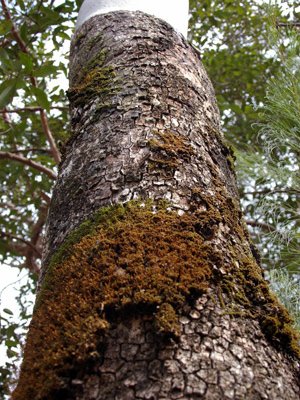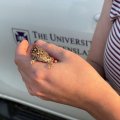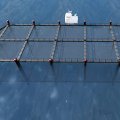
Many of Australia’s iconic eucalypt ecosystems could change beyond recognition due to increased climate stress.
Research at the National Environmental Research Program’s (NERP) Environmental Decisions Hub has found that heat waves, droughts and floods expected under climate change will alter environmental conditions so much that many eucalypts will no longer survive in their native ranges.
University of Queensland NERP Environmental Decisions Hub lead author Dr Nathalie Butt said trees are vulnerable to climate change.
“This is due to their long regeneration times and the relatively short dispersal distances of their seeds,” Dr Butt said.
“Many of Australia’s approximately 750 eucalypt species may not be able to keep up with climate change sufficiently to avoid heavy losses – and these will in turn have cascading impacts on local wildlife and other plants.”
Replanting is unlikely to help woodlands and forests persist.
To find out whether Australia’s various eucalypts can withstand likely climate changes, the NERP researchers tested different climate scenarios based on those used in the latest Intergovernmental Panel on Climate Change (IPCC) report.
“Previous extreme droughts have caused widespread dieback in eucalypts in some regions,” Dr Butt said.
“This suggests that some, such as savannah species in northern Queensland, are already at their limits.
“Climate change predictions of a shift to longer, drier periods in coming decades could therefore tip our eucalypts over the edge in many regions.”
In the study, the researchers applied mid-range and extreme climate scenarios to 108 eucalypt species and grouped them by climate region across Australia.
“Large areas of central Australia will become unsustainable for eucalypts, due to extensive summer drying and more frequent droughts,” Dr Butt said.
“Trees may gradually shift their ranges towards the coasts where growing conditions are more favourable, or die out due to drought.
“However, colonisation of new areas may not be possible as land is cleared for farming.
“We can’t assume we can simply restore ecosystems by reforestation.
“Replanting the same eucalypt species won’t help if the climate conditions are no longer suitable.
“This research will help inform the large scale restoration activities proposed by existing and future Australian governments.
“We need to think about how to help our local trees and plants to buffer climate stress.
“We also need to focus on how to reduce the impacts of climate change, by cutting carbon emissions and reducing other environmental stresses on our native trees,” Dr Butt said.
The study “Eucalypts face increasing climate stress” by Nathalie Butt, Laura J. Pollock and Clive A. McAlpine was published in Ecology and Evolution. See: http://bit.ly/189ivsX
The Australian Government funds the National Environmental Research Program (NERP) to inform evidence-based policy and sustainable management of the Australian environment.
Media: Dr Nathalie Butt, NERP Environmental Decisions Hub and UQ, 3365 1697 or 0437 902 079. Professor Clive McAlpine, NERP Environmental Decisions Hub, 3365 6620 or 0419 863 949. Karen Gillow, Science Communications, NERP Environmental Decisions Hub and UQ, 3365 2450 or 0402 674 409 or k.gillow@uq.edu.au.










